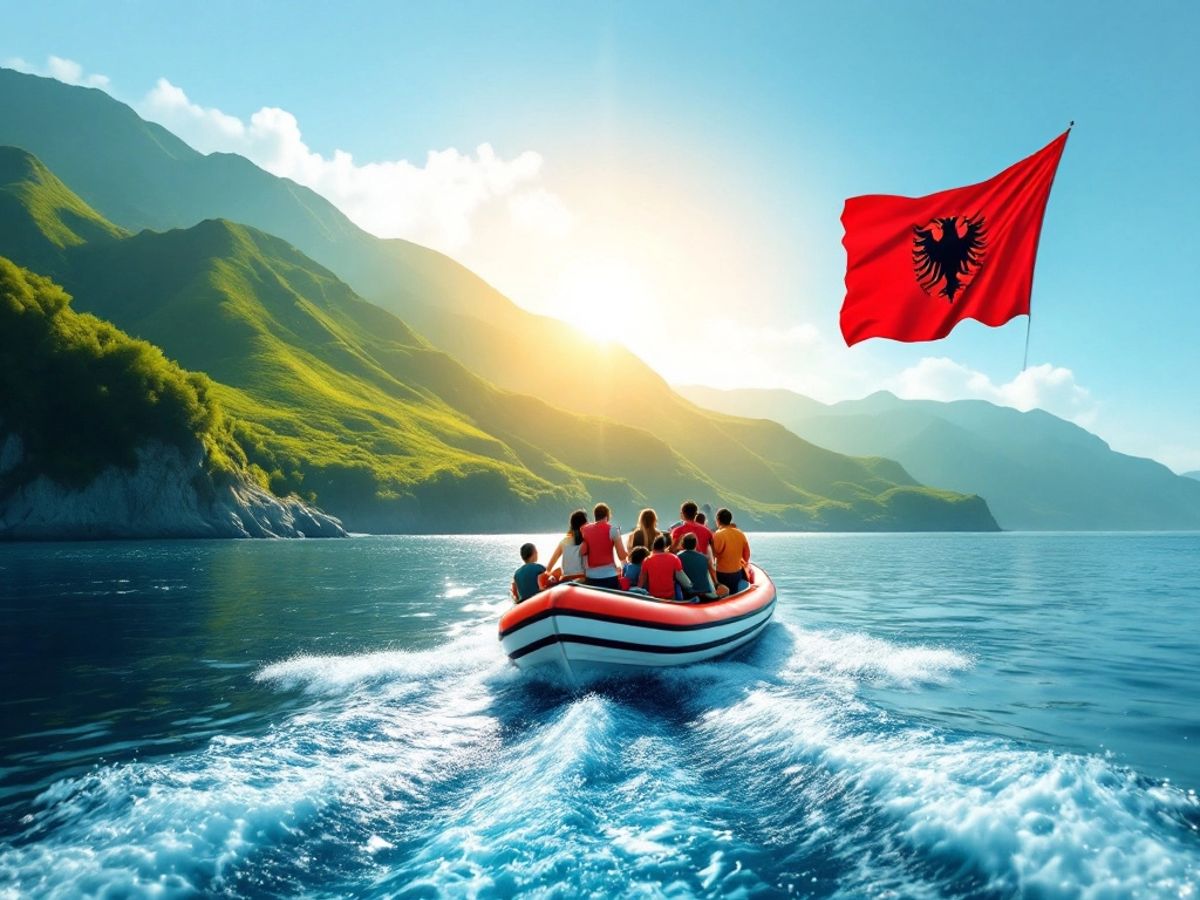Italy’s far-right government, led by Prime Minister Giorgia Meloni, has enacted a new decree to address judicial challenges to its controversial migration agreement with Albania. This decree, adopted late Monday, reduces the number of countries classified as "safe" from 22 to 19, allowing for expedited deportations of migrants who do not qualify for asylum.
Key Takeaways
- The new decree aims to facilitate the Italy-Albania migration deal by designating 19 countries as "safe."
- The list of safe countries has been reduced, excluding Cameroon, Colombia, and Nigeria.
- The decree follows a court ruling that rejected the detention of migrants sent to Albania, citing safety concerns.
- The agreement has faced criticism from human rights organizations and legal experts.
Background of the Migration Deal
In the autumn of 2023, Italy and Albania reached a significant agreement to establish two migrant processing centers in Albania. The first center, located at the Port of Shengjin, is designed to process male migrants rescued by Italian vessels in international waters. The second center, situated inland in Gjader, will hold migrants while their asylum applications are processed, with a decision expected within three months.
This deal aims to alleviate pressure on Italy’s immigration system by offshoring the processing of migrants to Albania. However, the recent court ruling in Rome has thrown a wrench into these plans, as judges ordered the return of 12 migrants to Italy, arguing that their countries of origin—Bangladesh and Egypt—were not safe for deportation.
The New Decree
In response to the judicial setback, the Italian government swiftly passed a decree that redefines the list of safe countries. The updated list now includes 19 countries, with Cameroon, Colombia, and Nigeria removed. This change is intended to streamline the deportation process, allowing Italy to send migrants back to these countries more efficiently.
Justice Minister Carlo Nordio emphasized that the decree carries the weight of law, making it more difficult for judges to challenge the government’s designation of safe countries. He argued that the recent European Court of Justice ruling, which questioned the safety of many countries on Italy’s original list, was misinterpreted by the judiciary.
Criticism and Concerns
The Italy-Albania migration deal has drawn significant criticism from human rights organizations and legal experts. Critics argue that offshoring migrant detention to a non-EU country raises serious human rights concerns and may violate international laws. They fear that this agreement could set a dangerous precedent for other nations looking to outsource their migration challenges.
Legal experts have also pointed out that the new decree may not resolve potential future conflicts with EU laws, which take precedence over national legislation. The European Court of Justice has made it clear that a country cannot be deemed safe if any part of its territory fails to protect the rights of all its citizens.
Conclusion
As Italy moves forward with its controversial migration deal with Albania, the implications of the new decree remain to be seen. While the government aims to create a model for managing migration flows outside EU borders, the backlash from human rights advocates and legal experts suggests that the path ahead may be fraught with challenges. The situation continues to evolve, and the international community is watching closely as Italy navigates these complex issues.
Sources
- Italy approves new decree to remove judicial opposition to migration deal with Albania, Anadolu Ajansı.
- Italy approves new decree on ‘safe countries’ to secure Italy-Albania migrant deal – Euractiv, Euractiv.
- Albanian Daily News, Albanian Daily News.
- Meloni defends migrant deal with Albania after court ruling, Intellinews.
- Weather forecast in Albania – Telegraph – Telegraph, Telegrafi.






